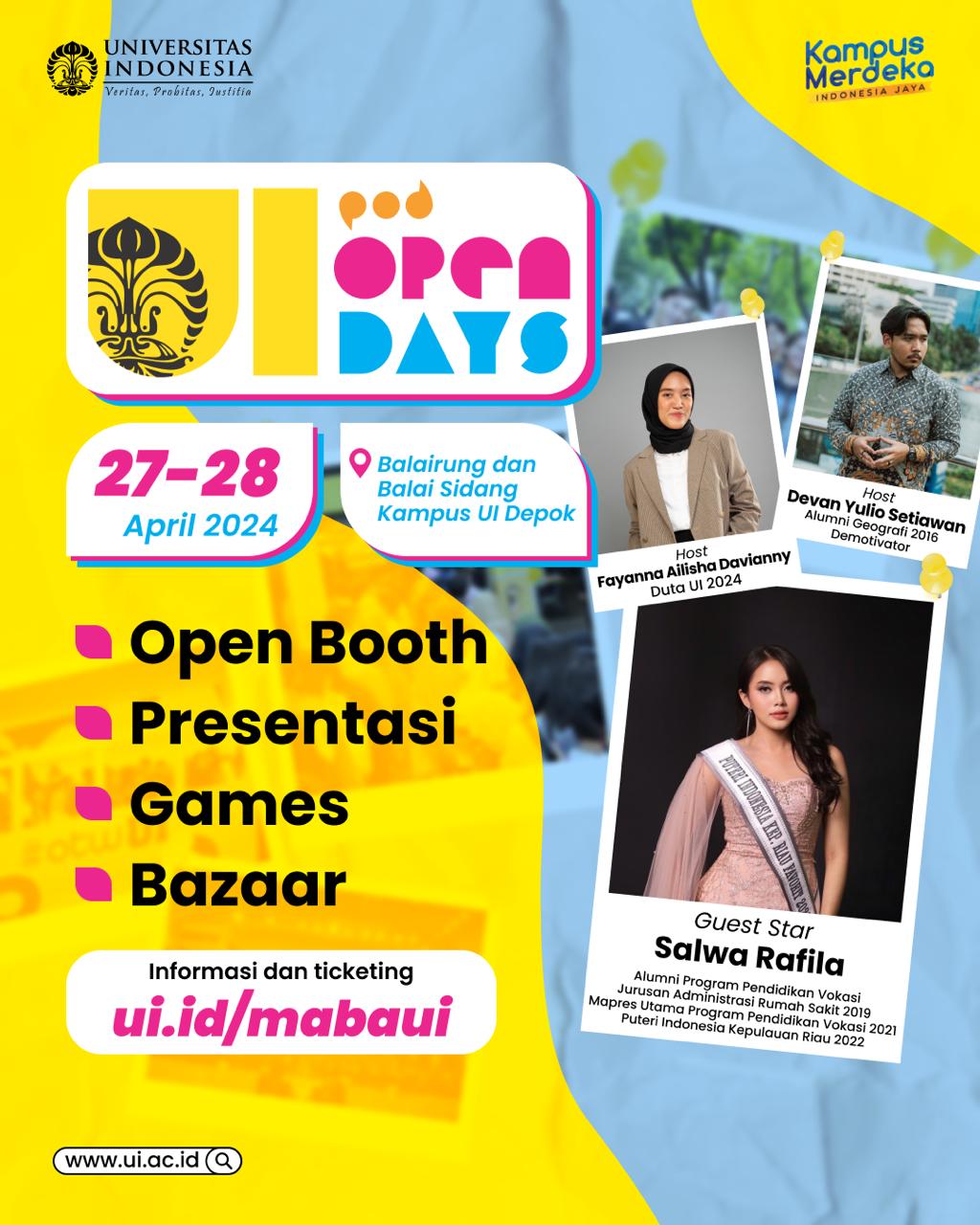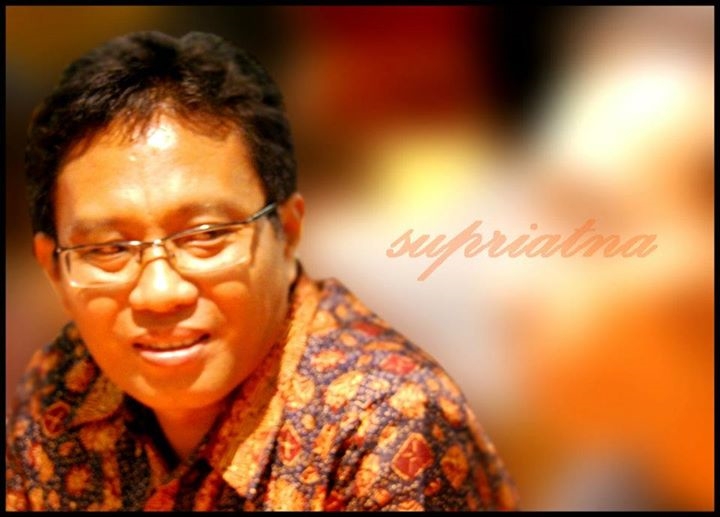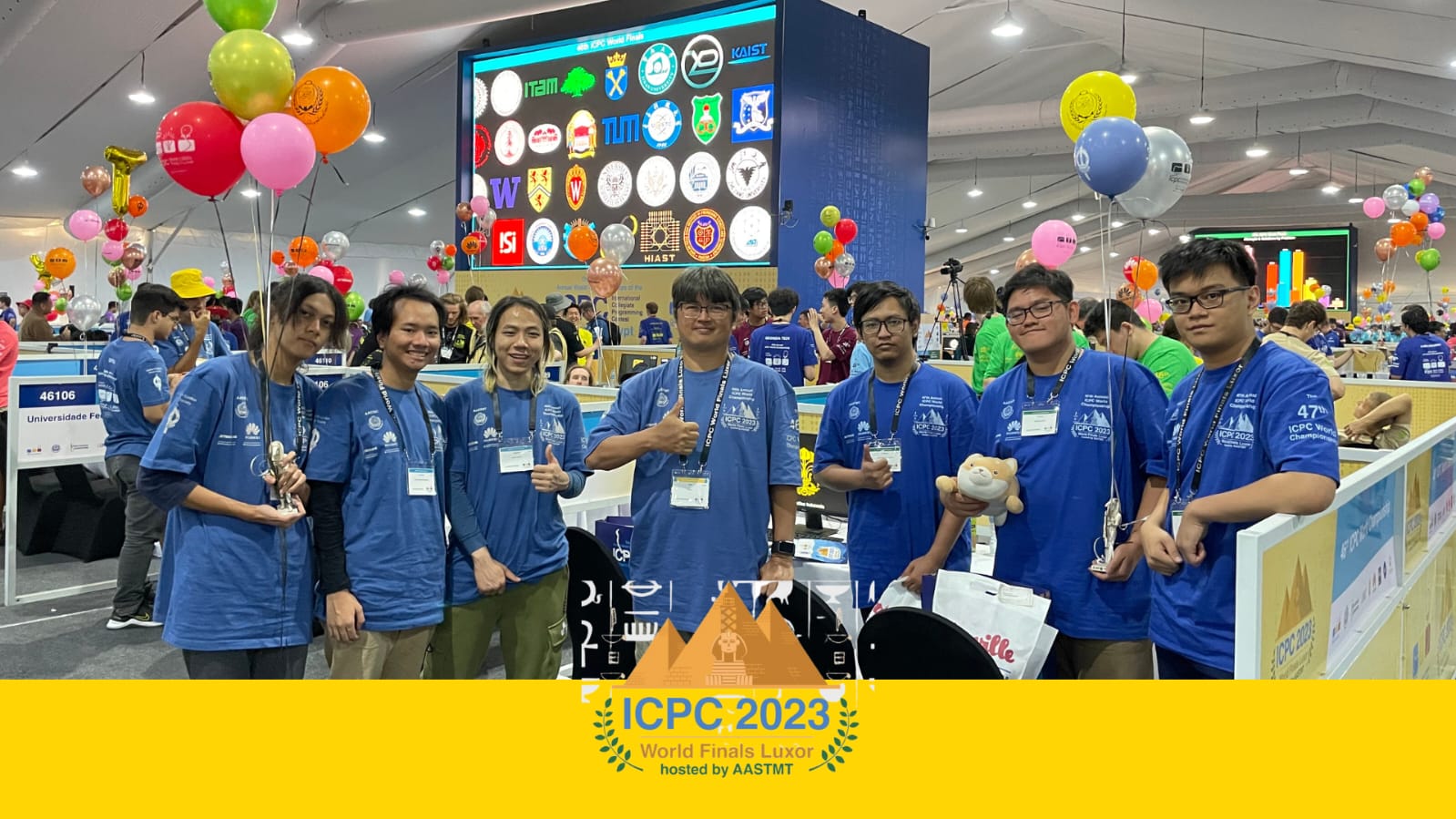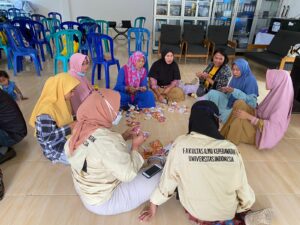
The amount of waste in tourist attractions is still one of the biggest problems for tourism areas in Indonesia. The accumulation of garbage in tourist areas will have a negative impact on the surrounding environment. Starting from pollution of mountain ecosystems, air pollution, to a direct impact on human health. If not managed properly, garbage will damage the environment and disturb the comfort of tourists, which can lead to a decrease in visitor numbers.
One of the tourist destinations that has problems in waste management is Sembalun District, East Lombok, which is located at the foot of Mount Rinjani (3,726 meters above sea level). This area includes six villages with cool air, with an altitude of 800 meters above sea level-1,250 meters above sea level. The sub-district is developing into an agro-tourism area that invites local, national and foreign tourists to enjoy the natural panorama and fresh mountain air. Unfortunately, there is still a lot of trash scattered and piled up, both domestic and non-domestic waste.
To support waste management in the tourist area of Sembalun District, the Community Service Team (Pengmas) of the Faculty of Nursing, University of Indonesia (FIK UI) carried out empowerment activities with the theme of “Empowering Community in Health Literacy for Sustainable Tourism in Sembalun Village, East Lombok, NTB” Through education and workshop of choosing and managing waste, given female cadres in Sajang Village, Sembalun, on Saturday (26/08)
This Community Service was carried out in Sajang Village by involving 25 participants. The involvement of cadres in this program is expected to be able to overcome local waste problems in a sustainable manner through two main activities, namely education and training. Before being given education, the cadres did a pre-test as a measuring tool for the knowledge of the cadres by the Community Service Team of FIK UI.
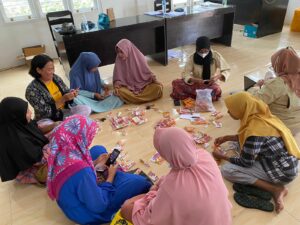
“Waste is indeed a complex problem in Sajang Village. The amount of waste in this village is quite high and difficult to recycle because the management is still not optimal. We hope that this community service can help cadres to improve their knowledge and ability to sort and manage waste to be practiced in a sustainable manner,” said Sajang Village Head, Lalu Kanahan.
Ns. Rona Cahyantari Merduaty, S.Kep., M.AdvN., as a representative of FIK UI lecturers, delivered material on the definition of waste, the importance of waste sorting and management, how to sort and manage waste, and the impact of poor waste management and sorting on health and the environment. After that, the participants were divided into three groups to be given training on how to manage waste into useful and valuable items accompanied by facilitators. Each group of participants managed to make pencil cases, bags, and door hangers from household waste. After completion, participants were again given a post-test to see the development of the cadres’ cognitive abilities after being given education.
FIK UI raises the issue of waste in this community service activity so that everyone has serious attention in solving the waste problem. This not only affects the environment, but also health. Nurses have an important role in providing education about health literacy, one of which is the importance of maintaining environmental cleanliness. Nurses play a role in preventing the increasing incidence of disease by providing nursing care, education or counseling, managing nursing services, and researchers.
The FIK UI Community Service Team consists of Hening Pujasari, S.Kp., M.Biomed., MANP., Ph.D., (Head of the Community Service Team); Ns. Rona Cahyantari Merduaty, S.Kep., M.AdvN.; Ns. Silvia Elki Putri, M.Kep.; Ns. Edian Fitriana, S.Kep.; and five FIK UI students, namely Alfisyah Salwa, Hanifa Zahrah Shalihah, Jihan Rahayu Marion, Septia Eka Ilhami, and Risya Fitri Salsabilla.

